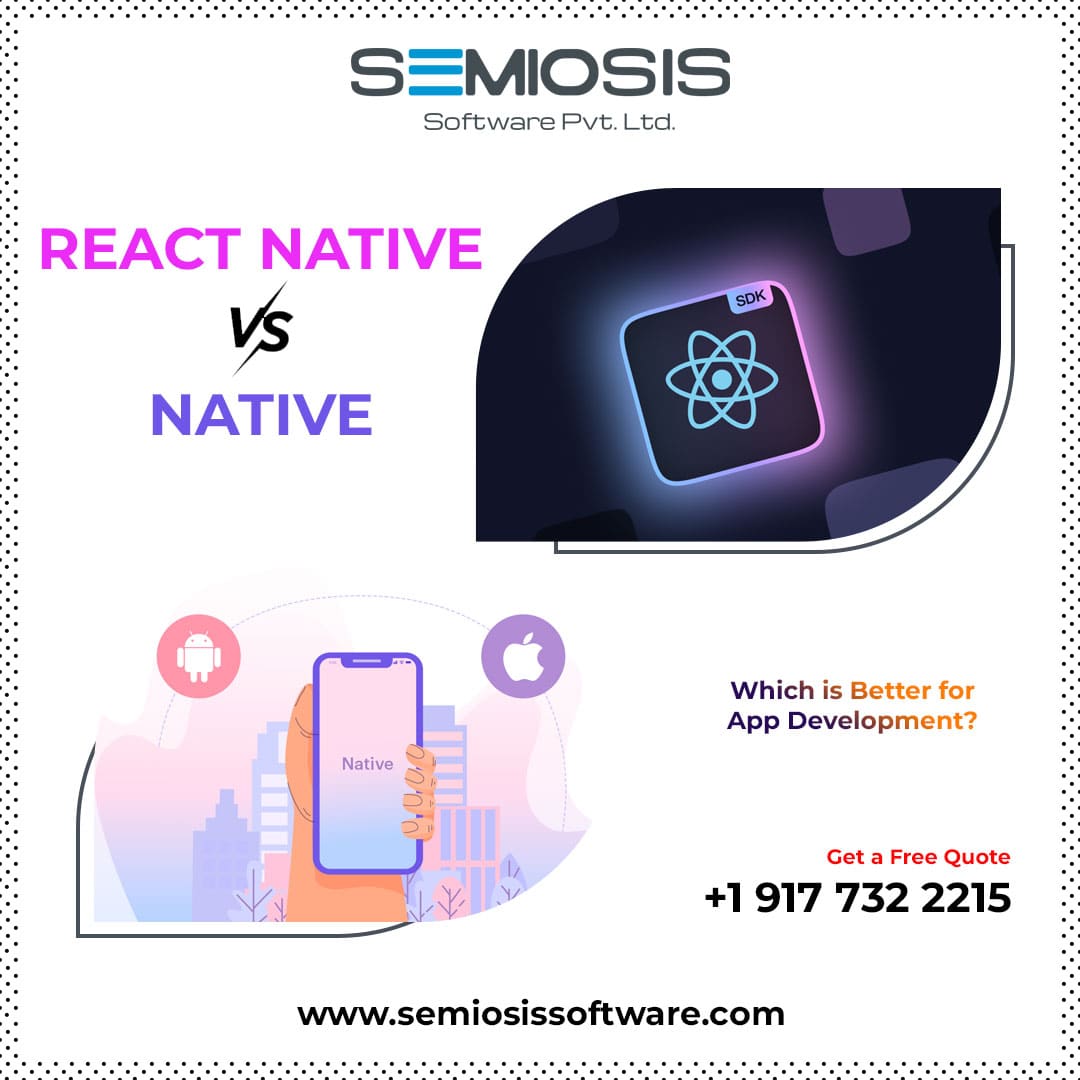React Native vs Native: Choosing the Best Approach for App Development
React Native Vs Native : In the ever-evolving landscape of app development, one of the most common dilemmas faced by developers is choosing between React Native Vs Native development. Both approaches have their merits and drawbacks, and the decision ultimately depends on various factors such as project requirements, timelines, team expertise, and long-term goals. In this blog, we’ll delve into the key differences between React Native Vs Native development to help you make an informed decision.
Understanding React Native and Native Development
React Native:
React Native is an open-source framework developed by Facebook that allows developers to build cross-platform mobile applications using JavaScript and React. It enables the creation of native-like experiences for both iOS and Android platforms while sharing a single codebase. React Native achieves this by using native components instead of web views, resulting in better performance and user experience.
Native Development:
Native development involves building applications specifically for a particular platform, such as iOS or Android, using the respective programming languages and development tools provided by Apple and Google. For iOS, developers use Swift or Objective-C with Xcode, while for Android, they use Java or Kotlin with Android Studio. Native development offers the advantage of leveraging platform-specific features and performance optimizations, leading to highly responsive and polished applications.
Pros and Cons
React Native:
- Pros:
- Cross-platform development: Write once, run anywhere, significantly reducing development time and cost.
- Large ecosystem: Access to a vast array of libraries, tools, and community support.
- Hot reload: Instantly see changes in the app during development, speeding up the iteration process.
- Cons:
- Performance limitations: While React Native offers near-native performance, complex animations and transitions may experience slight lags.
- Platform-specific issues: Occasionally, certain platform-specific features may not be readily available or require additional effort to implement.
Native Development:
- Pros:
- Maximum performance: Utilizes platform-specific optimizations for superior performance and responsiveness.
- Full access to platform features: Take advantage of all native APIs and functionalities without limitations.
- Seamless user experience: Native apps often provide a smoother and more intuitive user experience, especially on high-end devices.
- Cons:
- Development time and cost: Building separate codebases for iOS and Android can be time-consuming and expensive, especially for complex applications.
- Steeper learning curve: Requires proficiency in platform-specific languages and tools, potentially limiting the pool of available developers.
Choosing the Right Approach – React Native Vs Native
When to Choose React Native:
- Rapid prototyping: React Native is an excellent choice for quickly prototyping ideas and validating concepts across multiple platforms.
- Limited resources: If you have a small team or budget constraints, React Native allows you to leverage existing JavaScript skills and streamline development efforts.
- Simple to moderate complexity: For applications with straightforward UI/UX requirements and minimal platform-specific features, React Native offers a compelling solution.
When to Choose Native Development:
- High-performance requirements: For applications demanding the utmost performance, such as graphics-intensive games or real-time applications, native development provides the best performance and optimization.
- Platform-specific features: If your app heavily relies on platform-specific functionalities or requires deep integration with device hardware, native development grants full access to these capabilities.
- Long-term scalability: Native development offers greater flexibility and control over the codebase, making it a preferred choice for large-scale projects with evolving requirements.
Conclusion – React Native Vs Native
React Native Vs Native : In the debate between React Native Vs Native development, there’s no one-size-fits-all answer. Each approach has its strengths and weaknesses, and the optimal choice depends on your project’s specific needs, constraints, and objectives. Whether you prioritize rapid development, maximum performance, or seamless user experience, weighing the pros and cons outlined in this blog will help you make an informed decision. Ultimately, the key is to choose the approach that aligns best with your project’s goals and resources, ensuring a successful app development journey from start to finish.






